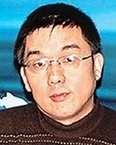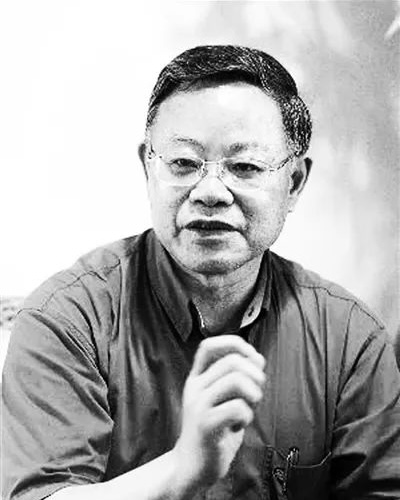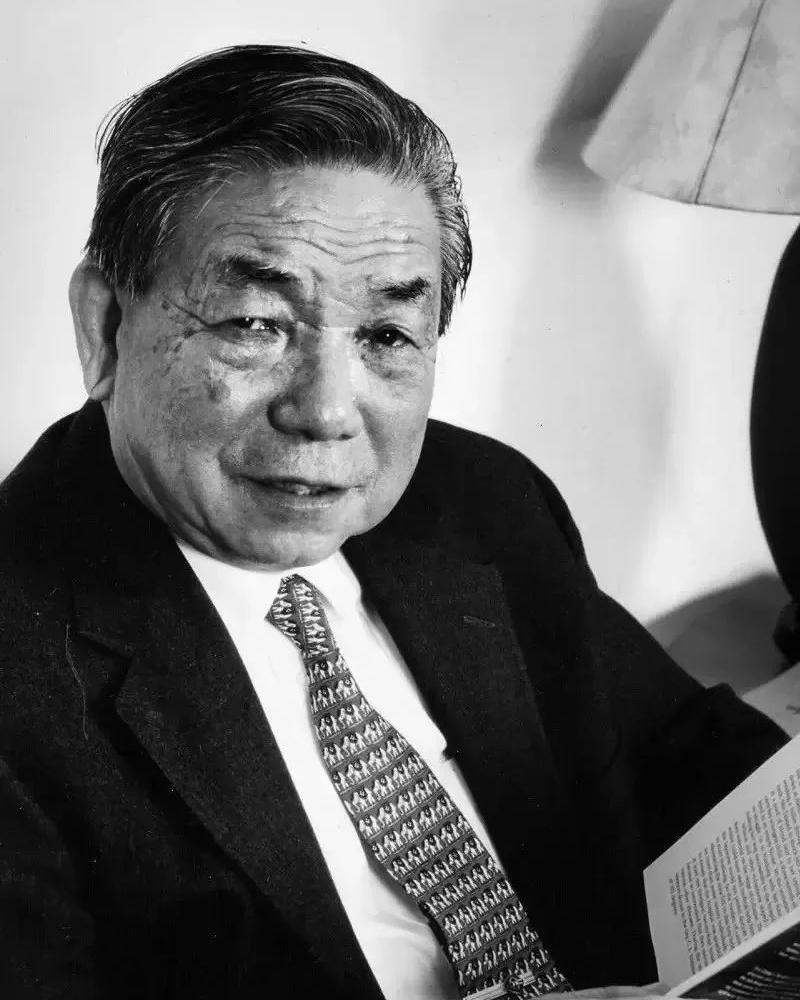
He Qinglian
He Qinglian (1956-), a native of Shaoyang, Hunan Province, is a writer and scholar. She was admitted to the Department of History of Hunan Normal University in 1979 and worked at the Hunan College of Finance and Economics after graduation in 1983. In 1985, she was admitted to the Department of Economics of Fudan University and received her master's degree. She taught at Jinan University in Guangzhou and later worked as an editor for the *Shenzhen Legal News*.
In January 1998, she published *The Trap of Modernization: Economic and Social Problems in Contemporary China*, which sold 300,000 copies in two months. She is also the author of *Population: A Hanging Sword Over China*, *The Fog of Censorship: Media Control in China* and *China: Crumbling But Not Collapsing*. Her books have been translated and published in several languages. She was listed as one of the 25 most influential People in 1999 by *Sanlian Lifeweek* magazine, which described her as "representing the conscience of China's reformers".
Due to political pressure at home, she left China for the United States in 2011. During her time in the US, she was a visiting scholar at the University of Chicago, the City University of New York, and Princeton University.
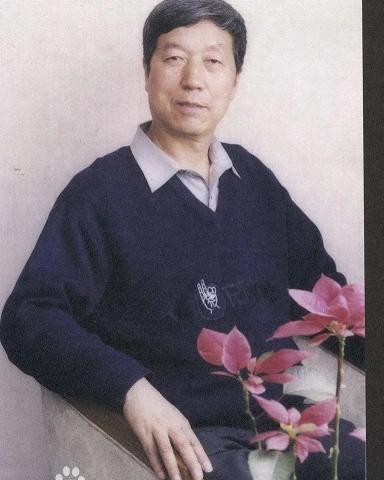
Wu Wenjun
Wu Wenjun (1940-2010), was admitted to the Chinese Language and Literature Department of Lanzhou University in September 1962 and joined the Communist Party of China in November 1972. He served as the deputy director of the Propaganda Department of the Lanzhou Municipal Party Committee and president of the Lanzhou Academy of Social Sciences, and also served as the deputy chairman of the Gansu Provincial Federation of Social Sciences, deputy chairman of the Lanzhou Municipal People's Political Consultative Conference, and chairman of the Lanzhou Municipal Federation of Social Sciences.
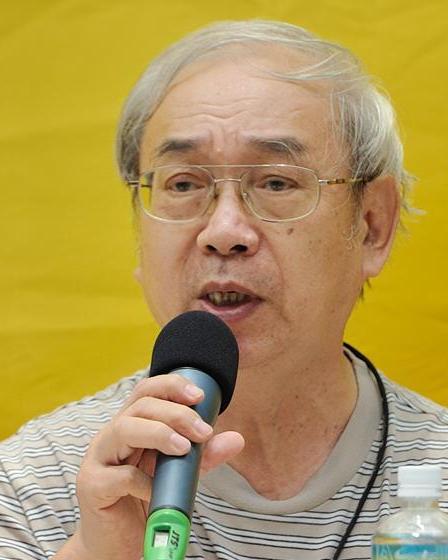
Wu Yisan
Writer Wu Yisan is the founder of Hong Kong Five-Seven Society, an organization established in 2007 and dedicated to the collection, research and publishing of everything related to the Anti-Rightist campaign in 1957, to restore and present the truth about a period of history characterized by severe persecution of intellectuals. Over the years, Mr. Wu has devoted himself to compiling The Dictionary of Names of 1957 Victims. As the Chief Editor of The Hong Kong Five-Seven Society Publishing House, he also published The Biography of the 1957 Rightists.

Haliday, Jon
Jon Halliday (June 28,1939—) is an Irish historian specializing in modern Asia. He was educated at University of Oxford and was formerly a senior visiting research fellow at King's College London.
Halliday has written or edited several books, including <i>A Political History of Japanese Capitalism and Korea: The Unknown War</i>. He and his wife, Jung Chang, co-authored a biography of Mao Zedong, <i>Mao: the Unknown Story</i> and <i>Mme Sun Yat-Sen</i>, about the life of Soong Ching-ling, the wife of Sun Yat-sen.

Qin Fuquan
Qin Fuquan (1929-2008), a native of Wuxi, Jiangsu Province, was the nephew of Bo Gu (Qin Bangxian). In order to raise funds for the Eighth Route Army during the second Sino-Japanese War, Qin's father, Qin Bangli, went to Hong Kong in 1938 to set up Liow & Co. (the predecessor of the China Resources Group), which was responsible for storing and transporting supplies and funds raised overseas, and Qin went with him; he was admitted to the Hong Kong Polytechnic University. In 1948, when Qin’s father secretly sent a group of China Democratic League members to mainland China to prepare for the establishment of the Committee of the Chinese People's Political Consultative Conference, Qin went with the group to Harbin. In 1950, Qin joined the Chinese Air Force and worked at the Air Force Engineering Department. In 1958, Qin was labeled a Rightist and assigned to work as a farmer in the Great Northern wilderness after demobilization. During the Cultural Revolution, he was also labeled an "Escaped Rightist" and was exiled to work in a farm. He was released in 1973 and then worked in an agricultural machinery factory and a diesel engine factory etc., retiring in 1989 and died in Beijing in 2008.
Qin wrote *Bo Gu and Mao Zedong - and the Leaders of the Chinese Soviet Republic*,in which he describes some important historical points in the early days of the Chinese Communist Party, the various activities among the top leaders of the CCP, such as Mao Zedong, and their relationships through the narratives and circumstantial testimonies of a number of knowledgeable people.

Ding Shu
Ding Shu (1944- ), originally from Dongtai, Jiangsu Province, is a writer. Born in 1944 in Hechuan, Sichuan Province, Ding moved with his family to Shanghai after the war against Japan and was admitted to Tsinghua University in 1962. During the Cultural Revolution, Ding was sent down to work at the Danyang Lake Farm in Anhui Province. In 1970, he went to Liaoning Province to work at a research institute; in 1979 he was admitted to the Graduate School of the Chinese Academy of Sciences, and in the following year went to the United States to study at the City University of New York. In 1990, he began teaching at the Normandale Community College, Missouri, and retired in 2016. In his spare time, he engages in research on contemporary Chinese history, and is the author of <i>Man-made Disasters: The Great Leap Forward and the Great Famine</i>, and <i>Open Conspiracy: The Complete Story of the Anti-Rightist Campaign</i>.
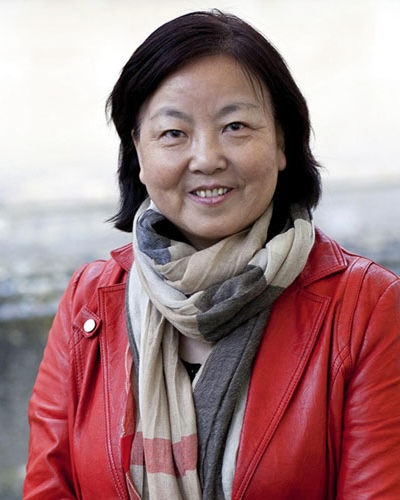
Fang Fang
Fang Fang (born 1955), is the pen name of Wang Fang, a Wuhan-based author who came to International attention through her portrayal of land reform in the early years of the People’s Republic of China, and the Covid lockdowns.
Fang Fang was born in Nanjing, Jiangsu Province, and her ancestral home is in Pengze, Jiangxi. She grew up in Wuhan, Hubei Province. In 1957, Fang Fang’s family moved to Wuhan, where she graduated from high school in 1974 and worked for four years as a laborer at the Wuhan Transportation Cooperative. In 1975, she began writing poetry and was admitted to the Department of Chinese Language and Literature at Wuhan University in 1978.
Fang Fang is a prominent contemporary Chinese writer and public intellectual who has long been involved in literary creation and cultural research. She has served as the president and editor-in-chief of <i>Jinri Mingliu</i> magazine, as well as the editor-in-chief of <i>Changjiang Wenyi</i>. She was also the chairman of the Hubei Writers Association and a member of the National Committee of the Chinese Writers Association.
She graduated in 1982 and was assigned to work as an editor at Hubei Television, beginning her career as a writer in the same year. Her debut short story was <i>On the Caravan</i>. In 1988, her short story <i>Eighteen-Year-Old March</i> won the Second Hundred Flowers Award presented by <i>Fiction Monthly</i>. In 1989, her novella <i>Scenery</i> garnered widespread acclaim and won the National Excellent Novella Award. That same year, she was transferred to the Hubei Writers’ Association to pursue full-time writing.
To date, Fang Fang has published over 100 works, including novels, essays, and poetry. Her novels have won numerous national and international literary awards and have been translated into English, French, German, Italian, Portuguese, Japanese, Spanish, and many other languages, gaining widespread international attention. Her best-known works include the novels <i>The Annals of Wuni Lake</i> (2000), <i>Water Under Time </i>(2008), <i>Wuchang City</i> (2011), <i>Soft Burial</i> (2016), and several novellas such as <i>Scenery</i> (1987), and <i>Grandfather in the Father’s Heart</i> (1990). Her writing style is primarily realist, with a focus on the fates of individuals during the development and changes of Chinese society, which has earned her many awards and accolades.
In 2016, she published <i>Soft Burial</i>, which discussed one of the most sensitive topics in the early history of the PRC: the party's violent campaign against the rural gentry (士) during the Land Reform Campaign. Influenced by the work of the independent scholar Tan Song, Fang describes the demise of this influential class of people, who once ran local society and were later caricatured as "landlords". The book was initially published by the People's Literature Publishing House (人民文学出版社), one of the country's most prestigious publishing houses. It received critical acclaim and won the Lu Yao Literature Award for historical realism. However, in 2017, Chinese authorities blacklisted the novel, and it was removed from bookstores and online platforms.
During the 2020 COVID-19 outbreak, Fang Fang wrote and published <i>Wuhan Diary</i> while the city was under lockdown. The diary detailed the social conditions and daily lives of the people in Wuhan during the early stages of the lockdown and became a focal point for social discussions. Fang Fang’s diary, with its straightforward and candid language, attracted wide attention but also sparked intense controversy. It was subject to censorship and deletion on online platforms, but it also received support from many scholars and writers.
Four years after the publication of Wuhan Diary, on January 25, 2024, <a href=”https://chinadigitaltimes.net/space/%E6%96%B9%E6%96%B9%E6%97%A5%E8%AE%B0”>Fang Fang wrote</a>:
<p style="margin-left:5%; margin-right:10%;"><i>“Four years ago, I did indeed start recording the pandemic on this day…I originally didn’t plan to write every day. Because, four years ago, I didn’t write anything, but two days after that, I happened to write two pieces. It was a coincidence. I probably thought at first: write when there’s something, stop when there’s nothing.”
“Unexpectedly, Wuhan suddenly entered the most severe period of the pandemic. Every day, something happened, So, I began writing every day.”
“I didn’t expect that some internet users, for the convenience of others, compiled all the previous records and named it Fang Fang’s Lockdown Diary and published it online. Thus, the term ‘diary’ was born. One overseas-educated scholar criticized me, saying that diaries should be kept in one’s drawer. I could only laugh at him. Because I didn’t know that this record would become a ‘diary’. … However, one thing must be said: Wuhan Diary is the greatest honor of my life. Even though it came unintentionally, it came like this, didn’t it? Not everyone gets the chance to experience such a severe and absurd online attack, and not everyone can endure this top-down and bottom-up storm of abuse. I was lucky to have encountered it and withstood it. Now I am still living well, firmly holding on to my beliefs and working hard at what I love to do.”
“Four years have passed, and I have always been glad I did this. Looking back, especially so. I think if I hadn’t made this record, even as someone who experienced it, I would have completely forgotten many details. So, compared to this honor, what are those low-level insults and the stones thrown by my colleagues? What does it matter if I can’t publish and release works?”</i></p>
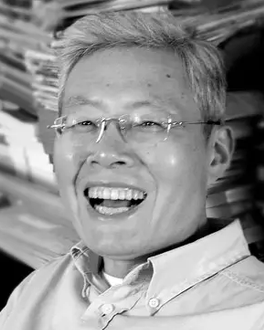
Gao Hua
Gao Hua (May 12, 1954 - December 26, 2011) was a historian from Nanjing, Jiangsu Province. In 1978, Gao Hua was admitted to the Department of History of Nanjing University. After graduation, Gao was assigned to work for the Nanjing Cultural Heritage Administration, and was readmitted to the Department of History of Nanjing University for postgraduate studies soon after. After graduating from Nanjing University with a doctorate degree, Gao Hua stayed on as a teacher, and was later promoted as professor and doctoral supervisor. From 2005, Gao Hua was also a professor and doctoral supervisor at the Department of History of the East China Normal University. In 2011, Gao died of liver cancer in Nanjing.
Gao Hua's main research areas are the Republican Era, the Communist revolution, and contemporary Chinese history. He has published several historical books, with <i>How the Red Sun Rose - The Origins and Development of the Yan'an Rectification Movement</i> widely considered to be a classic work on the history of the CCP. Gao Hua spent ten years collecting materials, and through open archives as well as other public documents, he exposed the secrets of the rise of the CCP and how Mao Zedong affirmed his personal authority through political campaigns. In the afterword of the book, Gao shares why he chose such a difficult topic to write on. He had actually been sympathetic to the CCP revolution. However, his father's experience of being labeled a Rightist during the Anti-Rightist Campaign and the subsequent tragedies of the Cultural Revolution made him skeptical. He therefore developed a "desire to investigate the history of the Chinese Communist Revolution".
The book has been reprinted dozens of times since its publication in Hong Kong in 2000, but it is banned in mainland China. On February 14, 2020, the English version of this book received Honorable Mention for the 2020 Joseph Levenson Book Prize, one of the most prestigious academic book prizes in the field of China Studies.

Wang Xiaolin
Wang Xiaolin (1953– ) was 16 when she went to live and work in the rural areas of Jingmen county, Hubei province, as a sent-down youth. In 1971, she worked at the Yangtze River Shipping Company, and was then admitted to the Telecommunications Department of the Northern Jiaotong University as a Worker-Peasant-Soldier student in 1973. After graduation, she joined the China Academy of Transportation Science as a communications engineer, retiring in 2001. As an independent writer, she has published her works in *[Yanhuang Chunqiu](https://minjian-danganguan.org/collection/%E3%80%8A%E7%82%8E%E9%BB%84%E6%98%A5%E7%A7%8B%E3%80%8B1991%E5%B9%B47%E6%9C%881%E6%97%A5-%E7%AC%AC1%E6%9C%9F)* (*China Through the Ages*, which the archives holds) and *Wengu* (*Reviewing the Past*) magazines, and is the author of *Gu Zhun and His Times* and *The Brothers Mingjian Xue & Yefang Sun*. She is also a volunteer of the Sun Yefang Economic Science Foundation.

Hong Zhenkuai
Hong Zhenkuai (October 28, 1974-) is a history scholar and columnist who writes for several media outlets, including *The Beijing News*, *Southern Metropolis Daily*, and *Caijing.com*. He was the executive editor of reformist magazine Yanhuang Chunqiu (China Through the Ages), but resigned in 2014 due to dissatisfaction with the authorities’ arbitrary change of the publication’s supervisory unit. His main field of research is economic history, with a special focus on the relationship between finance, taxation and historical/social development. On April 11, 2010, *Southern Metropolis Daily*’s history review section published Hong Zhenkuai's article "L*ove of the country is not the same as love of the king*," which was later taken offline from the newspaper’s website, and the editor of the section was suspended from their position. In 2013, Hong published articles questioning some elements of the story of "Five Warriors of Mount Langyashan," who allegedly jumped off a cliff while fighting the Japanese during World War II rather than surrender. He was then sued by the descendants of the survivors of the five soldiers for reputation damage in 2015, and Hong lost the lawsuit. Hong later also filed reputation damage lawsuits against individuals and organizations that questioned and verbally abused him, and he lost all the cases. In one of the judgments, the court found that the motive of the abusers was to safeguard the image of the martyrs, which was in line with mainstream social values.





